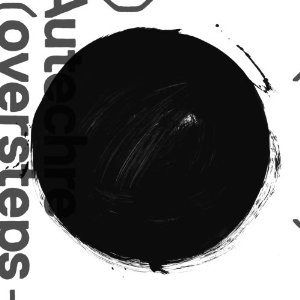So, what can you say about Autechre? In the widely circulated press release that pre-empted Oversteps, Paul Morley took a pithy two thousand words to conclude that Autechre left him (relatively speaking) speechless. They have an almost unique ability to inspire and infuriate their following, yet such is the esteem in which they are held each new album is greeted with hushed reverence. Their work almost seems to levitate above criticism.
Incunabula, Amber and Tri Repeatae garnered near-universal praise, while their work from 93-95 is often referred to as being among the greatest electronic music ever recorded. It is occasionally described as being amongst the best music ever recorded. Yet as time passed, Autechre began to split opinion – as Autechre’s transmissions have become increasingly arrhythmic and mechanical, the gulf between the lovers and the haters has widened.
2008’s Quaristice seems to have provoked less fractious debate. More a collection of fragments than a cohesive statement, it’s perhaps the only studio album in their catalogue that has been greeted with anything approaching indifference. What it did demonstrate, however, was a return to a more corporeal sound. There was new warmth in the ambience of tracks like ‘Altibzz’, and ‘Notwo’ while the chugging ‘Tankakern’ sounded like raving in utero.
While Quaristice will never be considered one of Autechre’s best, it occupies an interesting position within their discography, being their first album that gave little clear indication of where they would go next. When Warp’s Steve Beckett talks about Autechre, he often likes to point out that Rob Brown and Sean Booth remain essentially Mancunian b-boys, old-fashioned beatheads whose infatuation with breaks and bass has never faded. They certainly remain master programmers, and Oversteps asserts this again and again.
Even amongst the disorientating arrhythmia of opening fanfare ‘R Ess’, the splattering percussion recalls the syncopated snap of early UK garage. ‘Treal’ employs an uncharacteristically straightforward breakbeat, the austerity of which is compelling in the company of tracks like ‘Qplay’, during which several incompatible, off-kilter rhythms vie for supremacy before it eventually settles into a detailed, mid-tempo stomp.
Significant parts of the album were constructed from edits of live studio sessions. At their best, these tracks are playful: the masturbatory keytarish noodling of ‘Known1’ is quite droll by Brown and Booth’s standards. Elsewhere Oversteps veers towards self-indulgence. ‘Pt2ph8’, ‘See On See’, ‘Redfall’, and ‘Krylon’ all feature some staggeringly gauche timbres, like duelling robotic harpsichords. It sounds as if the duo has been having some fun with the gizmos at their disposal, but the cumulative effect can be gruelling.
Despite this, Oversteps is a fine album. ‘Os Veix3’ and ‘St Epreo’ are brooding metallic juggernauts whose fathomless melancholy would not have sounded out of place on one of Autechre’s first three albums. In comparison with those older works however, every track on Oversteps sounds huge. The refinement of the producers’ abilities as sound designers has resulted in a record that evokes incalculably vast sonic space. When they combine this with the melodic grace of a track like “ILanders”, Autechre remain a devastating proposition, the surging, elastic synths seeming somehow to reference both Modeselektor’s ‘The White Flash’ and the main theme from Brad Fiedel’s Terminator 2 score.
In some respects Oversteps is analogous with Autechre’s work in general. It is inconsistent, and at times frustrating. At points it is obtuse and wilfully antagonistic. At others it is sublime. Some of the music here is as good as anything Autechre have created, which surely no one would deny makes it very good indeed.


